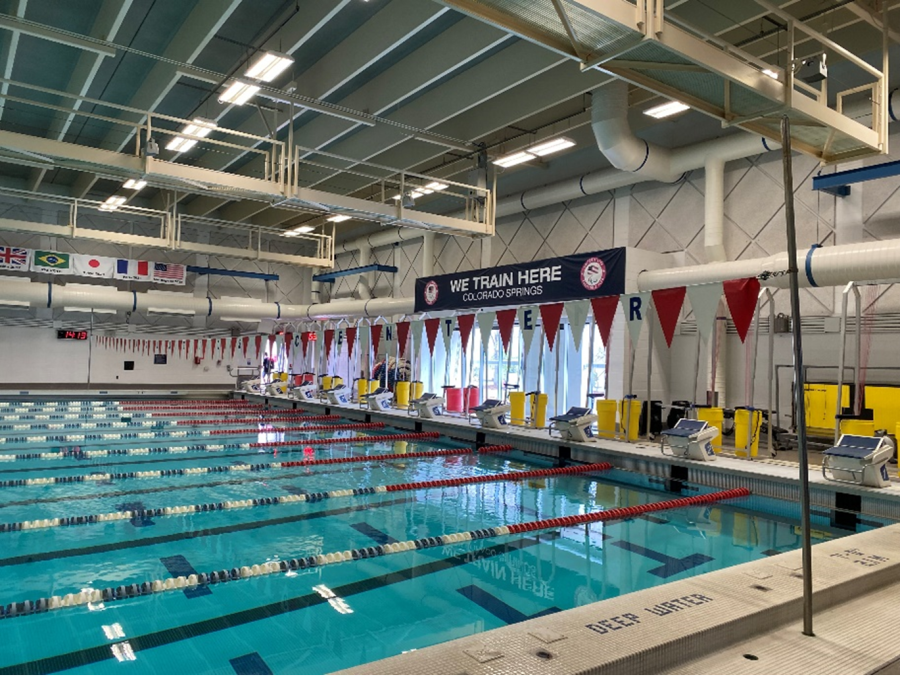My History with Racing Anxiety
The Olympic-sized swimming pool located at the Olympic Training Center in Colorado Springs.
I hear the second whistle, indicating for me to step up onto the diving block. My feet feel the block’s rough surface, and I think to myself, “I wish I could just finish this race as soon as possible.” At the words, “Take your mark”, my body tenses up, anticipating the buzzer. As the buzzer sounds, I dive into the ice-cold water, dreading the exhaustion following this 400 IM while doubting my capability to perform in a midseason meet.
Throughout my 10 years as a swimmer, racing anxiety came to me in different ways. It wasn’t always in the form of a 400 IM, nor was it through the thought that I wouldn’t swim well. Rather, it was the fear of failure, of not performing to my best. This “fear” made it hard to stand up on the blocks, to focus on the race, or to even think about upcoming swim meets. Over time, this negative mindset manifested in my races and affected my performances, which only adversely impacted my mentality; this led to a downward spiral of a negative mindset leading to bad races which in turn worsened my mental state.
Swimmers have a lot to focus on before, during, and after a race in order to perform their best, which subsequently contributes to racing anxiety. Ensuring they keep a consistent sleep schedule weeks before a competition, eating a nutritious meal a few hours prior to a race, and swimming a few laps in a pool to warm up minutes beforehand are all common strategies to optimize performance. During a race, swimmers have to focus on proper technique while maintaining a consistent pace, requiring a unique combination of physical strength and mental focus. After a race, swimmers might drink a recovery shake or swim a few additional laps to cool down, repeating this cycle for every swim competition.
The number of variables to consider for a swim meet was overwhelming and as a swimmer, I tend to overfocus and place heavy emphasis on races that may not matter much in my overall season. Understanding that one bad race will not affect my future performances was crucial. I was able to break the downward spiral of racing anxiety by resetting my mindset before every competition and focusing on the process rather than the outcome.
Every swimmer has a different method of dealing with racing anxiety, and this article by Swim Swam News, pre-race-anxiety, has great tips on how to stay calm before races. Performance anxiety is not exclusive to swimming and is prevalent among all sports. Understanding how to control pre-race anxiety benefits both short-term races and long-term mental health, facilitating a healthy relationship between athletes and swimming.

